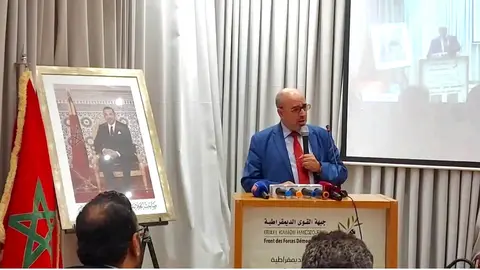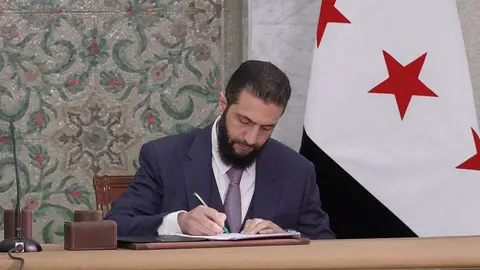The Polisario Front on trial: there is no present without a past

In any case, it should be a moral imperative that would be badly started if it made the mistake of not categorically and unhesitatingly acknowledging its bloody past against Spanish citizens. Between the 70s and 80s of the twentieth century, during what was known as the ‘Black Decade’, the group committed around 300 documented attacks against workers at Fos Bucraa and fishermen from the Canary Islands, Andalusia, Galicia and the Basque Country, according to the Canary Islands Association of Victims of Terrorism (ACAVITE). These crimes reveal such a clear historical record of terrorism that the United States cannot ignore them when assessing its designation as a terrorist group. In other words, such a designation would be incomprehensible without the inclusion – even as the main basis for the proposal – of the criminal acts that characterised that decade.
Brahim Ghali himself, the current leader of the Polisario and Minister of Defence during those years, coordinated attacks such as the Cruz del Mar (1978), in which seven Spanish crew members were executed, and the hijacking of the Mencey de Abona (1980), whose skipper, Domingo Quintana, was found strangled with a Polisario flag tied around his body. These are just a couple of examples among countless others, despite the political and media oblivion, especially in the Canary Islands. These events, backed by Spanish court documents and extensive newspaper archives, show that the group operated as a terrorist militia decades before its current links with Iran and Sahelian jihadism were investigated, which are now being used as the main argument for its inclusion on the aforementioned list.
While Senator Joe Wilson pushes his bill against the Polisario and the Hudson Institute, one of the most influential think tanks in the United States on national security and foreign policy issues, warns of its links to terrorism, the designation promoted by these entities is based on different grounds:
- Links to Iran and Hezbollah: according to information published last April by The Washington Post, hundreds of Polisario fighters trained by Iran operated in Syria until the fall of the Al-Assad regime. Furthermore, Morocco broke off relations with Iran in 2018 for alleged logistical support to the Polisario.
- Arms trafficking to the Sahel: in its recent comprehensive study, the Hudson Institute accuses the Polisario of supplying arms to jihadist groups, supporting the Iranian IRGC and having links to extremist groups, thereby threatening US interests.
- Recent threats: in January 2025, the Polisario threatened Mauritania, through one of its main leaders, Bachir Mustafa Sayed, for collaborating with Morocco, confirming that its modus operandi continues to be based on coercion.
In fact, Mustafa Sayed himself had already made statements in support of terrorism a year earlier, using his usual violent and dangerous rhetoric, inciting Sahrawis to commit terrorist acts against Moroccan interests anywhere in Western Sahara. Among other things, his words were: ‘Let each one convince three others and go out to carry out attacks. Each militant must detonate three or four of these explosives every night in the cities of Esmara, Dakhla or Bojador’.
The designation of the Polisario as a terrorist organisation should be an act of transnational justice. Including its crimes against Spaniards in the file, for which it has never been held accountable before the courts, would strengthen the credibility of the file and serve in some way as historical reparation, the same reparation that has been denied time and again within our borders. It is imperative to recover the memory of that tragedy and break with the false narratives that helped to consign it to oblivion: the Polisario is not a liberation movement shrouded in romanticism. It was a criminal structure that normalised violence against civilians decades before jihadism reached the Sahel.
The US administration has a unique opportunity: to declare the Polisario a terrorist organisation, not because of its alliances with Iran or Hezbollah, but because of its crimes against citizens of what was always a key ally, Spain. The memory of those who died in the cold waters of the Atlantic or in the mines of Fos Bucraá cries out for this historical rectification. Honouring the victims requires this decision.



